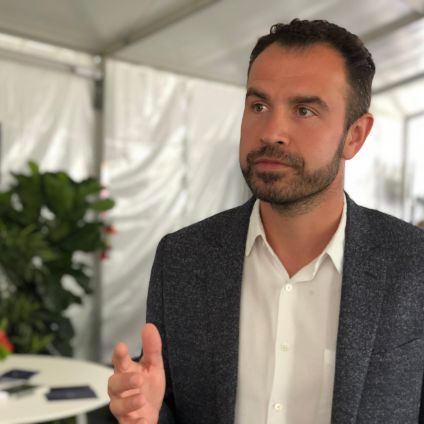The democratization of technology – accelerated by Web 3.0 – can help make the Fourth Industrial Revolution more equitable than the previous three.
History tells us that industrial progress favors entrepreneurs and capital. Yes, it raises wages and conditions for workers, but often their advances and expected benefits lag way behind.
Could the Fourth Industrial Revolution (i4.0) be different? The promise of democratization of technology to open up opportunities for a fairer world, bringing information and capital within the reach of anyone with a smartphone or laptop was one of the topics this year at Davos.
While i4.0 and Web 3.0 are not the same, they both offer exciting future visions of our digital society and economy. With its blockchain driven decentralization, Web 3.0 is all about collective ownership and sharing, giving greater freedom to creators and users, putting them in the driving seat, and enabling individuals to control and monetize their ideas and intellectual property.
You can already see examples of this in action, with a vibrant cryptocurrency market, and blockchain slashing the costs of remittances. The world’s 2 billion or so unbanked will likely have the chance to leapfrog legacy approaches to embrace peer-to-peer and other low-cost financial services via their mobile phones. And peer-to-peer marketplaces are emerging everywhere, connecting investors, sellers and buyers.
The pandemic shone a light on how important it is to aim to minimize the digital divide and bring much needed connectivity to as many as possible, thinking of high speed internet access in the same vein as power and water.
In the US, the government recently announced a US$45 billion investment package to provide affordable, reliable, high-speed internet for everyone by 2030. Similar initiatives are happening elsewhere. But more needs to be done, with greater access to affordable devices, and better education for all. While there is much to be proud of, those getting left behind today, may never catch-up to those already in the digital fast lane, there is much still to do.
Many of the jobs that today’s children will likely be doing in future don’t even exist today. In which case they must acquire the technical skills, values and awareness to thrive in constantly disrupted economies and societies. Governments – and business – should play their part to collaborate, to train and build a workforce that is equipped to work with the digital tools of the future, such as robots that if adopted in the “right” way, may hold the keys to unlocking breakthroughs for humankind.
Digital literacy for all can be a key to harnessing the power of Web 3.0 and bring to fruition Tim Berners-Lee’s original vision: An internet freed of central control, giving content owners sovereignty over their ideas and their data.
Steps like these can hopefully shift the flow of digital opportunity away from the few and enable everyone to prosper in the Fourth Industrial Revolution.
Stay up to date with what matters to you
Gain access to personalized content based on your interests by signing up today


